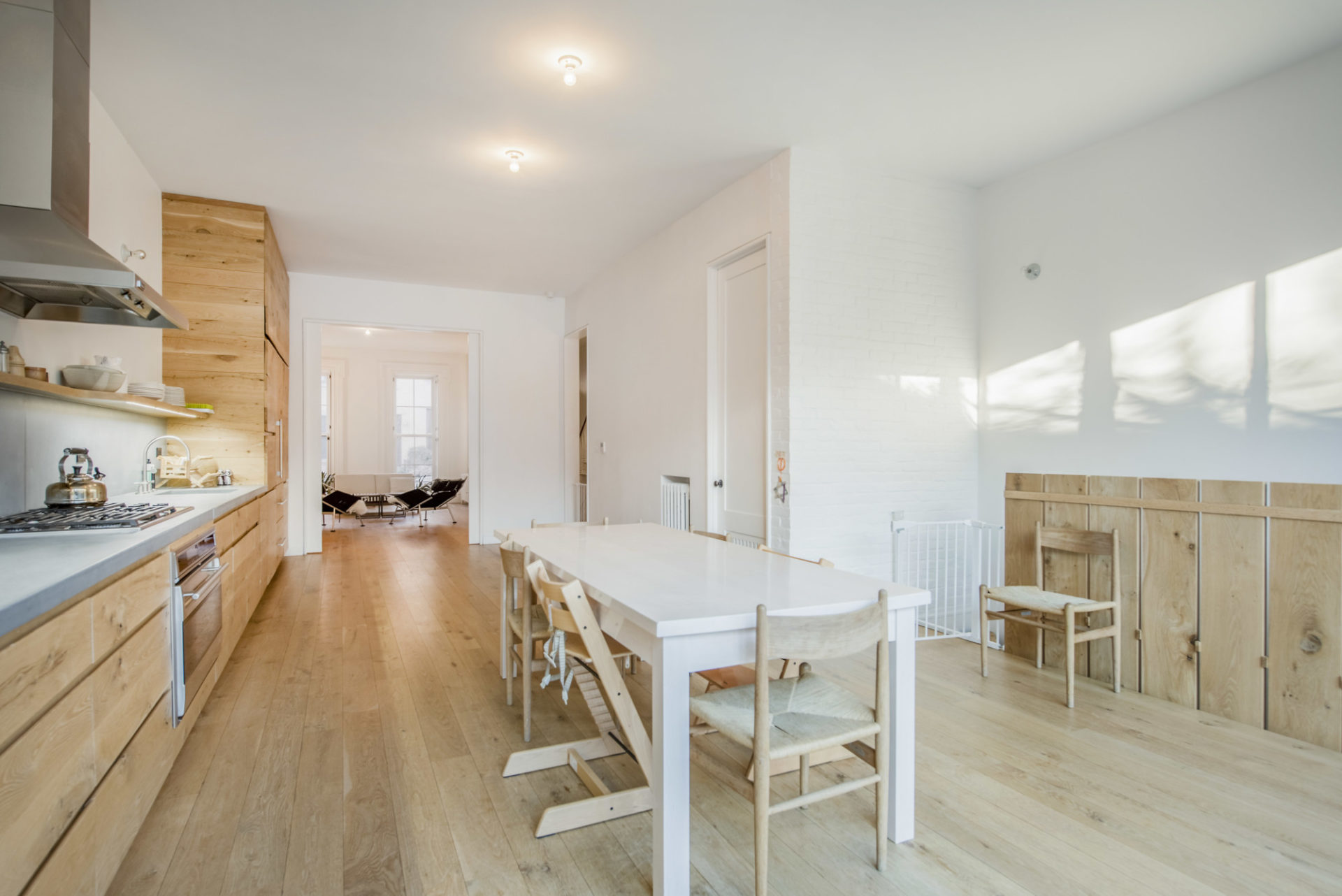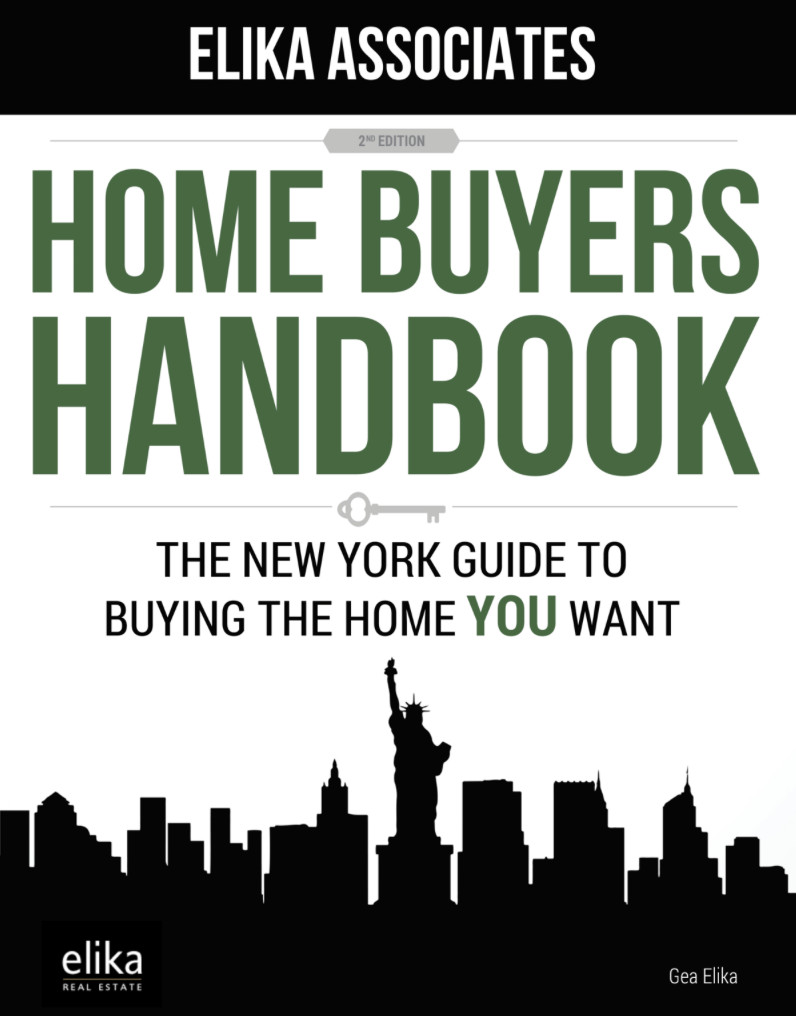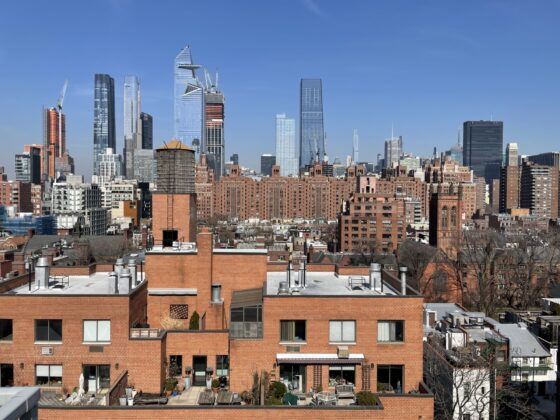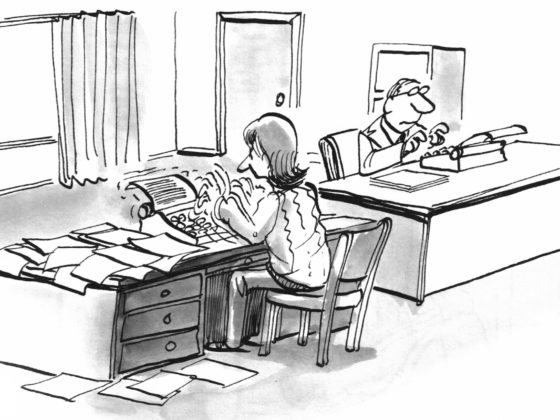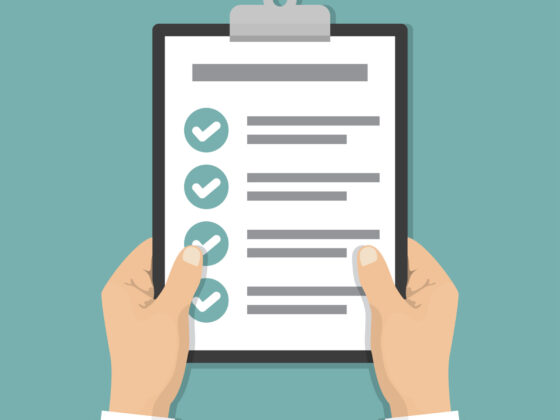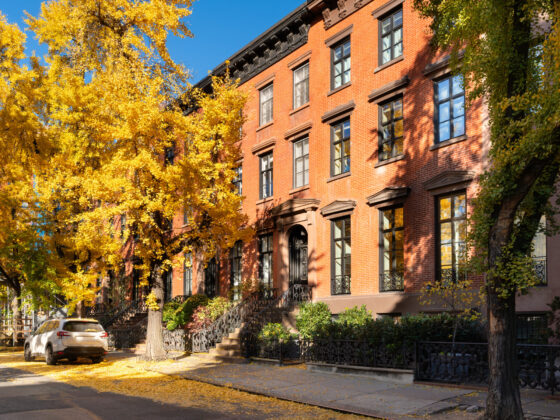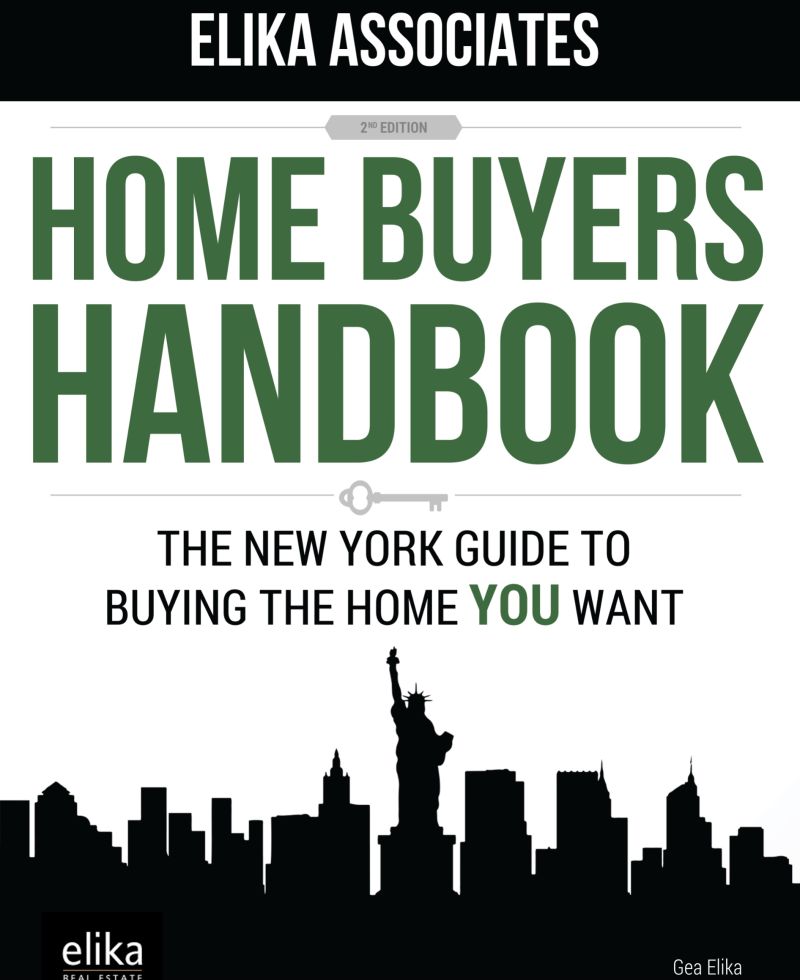Table of Contents Show
The decision to become a homeowner will be one of the biggest you’ll ever make. Buying a home can be more complicated than you think, especially if it’s your first time. Our first-time home buyers guide provides everything you need to know about the process.
At present, the city has a high level of luxury inventory. However, the primary rate-sensitive market is buoyant. It makes this an excellent time for buyers. For now, at least, rates are low, increasing buying power. However, interest rates will begin to climb in the years ahead. Rising rates lower the number of apartments or houses you can afford later. On the other hand, buying an apartment or home can be cheaper than renting in New York City. The most significant obstacle for first-time homebuyers is having enough money for a downpayment.
Our step-by-step home buyers guide guides you through the buying process, preparing your wishlist, mortgage pre-approval, finding a home, and closing on your new home. There will be much to learn and confusion. Fortunately, we’ve condensed all the needed information into this helpful guide. So read on to learn about the buying process and how you can become the proud owner of your own New York City apartment or house.
Buying a Home in NYC – Free Download!Buying a Home in NYC – Free Download!
Being a home buyer with the prospect of buying an apartment or home is an exciting and often overwhelming experience. To help you understand the process and get the best possible outcome with your home purchase, in addition to our article below, we’ve prepared a home buyer’s guide here to help you get started.
The information it contains; includes useful tips and recommendations, an understanding of the apartment or home buying process, and avoiding costly mistakes.
Get pre-approved for a mortgage.Get pre-approved for a mortgage.
Don’t waste your time, a seller’s time, or the brokers’ time involved in the sale by not getting pre-approval for a mortgage. By getting a mortgage pre-approval letter before you begin searching for your new residence, you’ll have the ability to make an instant offer should you stumble upon “The One.” Without pre-approval, agents and sellers won’t take you seriously. Instead, they’ll move on to a buyer who has the necessary paperwork. Plus, you’ll know how much cash you qualify to borrow ahead of your search.
Try our mortgage calculator to understand your monthly payments and the cost over the years.
Planning for the future before buyingPlanning for the future before buying
Buying an apartment or house makes sense if you intend to live in it for at least seven to ten years, any less, and you may wind up losing money in the transaction. In a real estate transaction, the seller can quickly expect to pay up to 10 percent of the home’s sales price in closing costs, allowances, commissions, necessary repairs, and other negotiated expenses.
Also, sellers rarely get the full asking price for their apartment or home unless the housing market has an inventory shortage. It’s also possible to get the total asking price if a well-renovated home is in a great location or features distinctive and appealing architectural details.
What does that mean for the first-time homebuyer?What does that mean for the first-time homebuyer?
It means trying to predict the future.
- Do you plan to start or grow your family in the next seven years?
- Is there a possibility your employer will transfer you to a location in another part of the country?
- Do you have an ailing or aging parent who may need to move in with you?
Predicting the future also means buying only as many apartments or houses as you think you’ll need, but not much more. In the past, the trend for a first-time apartment or home buying was to purchase a smaller, more affordable “starter apartment or home” and then sell it in a couple of years when the family (and the household income) grew given the real estate market variables, that no longer seems like the best strategy. Today, you are better off buying the apartment or home you think you’ll need for your family for the next seven to ten years.
Don’t buy a bigger home than needed.Don’t buy a bigger home than needed.
Condos and homes with multipurpose rooms, like a dining room that can convert into an office or an attic that can be transformed into a bedroom, make sense as you arrange your home to meet your family’s changing needs. Resist the temptation to buy too much home. The additional taxes, utility payments, and maintenance and repair costs restrict your ability to save for other family necessities. As the saying goes, no matter how big your apartment or house is, you can only sit in one chair at a time.
Deciding whether or not now is the time to buyDeciding whether or not now is the time to buy
It’s a well-known fact that renting an apartment in New York City comes at a high price. While renting may offer a few benefits, such as leaving you off the hook for property taxes and repairs, it will also mean missing out on the many advantages of homeownership. Buying means you can start putting down some roots and open up new opportunities for career advancement. There are also financial and emotional benefits of becoming a homeowner in New York. Are you ready to purchase your first home? The answer depends on, in part, your response to the following questions:
- Are you prepared to maintain and repair an apartment or house?
- Are you willing to stay in the same apartment or home for at least five to ten years?
- Do you have a realistic idea of the type of apartment or home and the amount of space you’ll need for the next five to ten years?
- Are you relatively sure your financial situation will remain stable or improve over several years?
- Are you a disciplined saver who can build up an account for emergency repairs?
Other vital signs to recognize when it’s time to buy are:
When you’re sure you want to stick around.When you’re sure you want to stick around.
It makes more sense to buy when you know you want to settle in and stay put for at least five years. You’ll be spending a lot less per month on a mortgage payment than rent, which will make it better over the long term. You’ll also get a tax break on the interest you pay toward your mortgage. So long as you feel financially ready and know you want to stay in New York, it makes more sense to buy as soon as possible.
It’s also worth remembering that you’ll be paying less each month for the same kind of property or better than if you’re renting. With a fixed mortgage, the amount you’ll be paying each month will be “fixed in time” compared to the rising rents of similar properties.
When you can get a good ROIWhen you can get a good ROI
Buying pays off financially when your purchase gives you a decent return on your investment (ROI). So whether you’re an investor looking for another rental or your permanent residence, you need to make sure the property in question will profit you in the long run.
To ensure you’re making the right purchase, confirm that it satisfies these qualifications:To ensure you’re making the right purchase, confirm that it satisfies these qualifications:
- Is it in an area that has seen a steady increase in value?
- Is the neighborhood appealing to others? For instance, is it convenient to amenities like the subway/public transit and local shopping?
- Does the property have unique architectural details or something unique and special about it?
- Does it have an evergreen appeal in case you plan to resell?
- Is it in good condition, or does it need a lot of TLC?
Any property in excellent condition that covers your needs and is likely to grow in value over time is one to scoop up. On the other hand, any transaction where you’re losing money isn’t one to pursue. The best way to maximize your chances of finding the right place is to carefully explain your needs to an agent and scout out the best properties for your needs.
When you want to be a homeownerWhen you want to be a homeowner
If you’re not happy with renting for various reasons, whether it’s the lack of freedom to renovate or the intrusive inspections, becoming a homeowner can be the answer. Being a homeowner will give you a higher level of control in running your home. You also don’t have to continually renew leases or abide by specific terms (like pet restrictions, etc.). Call a realtor and see your buying options if you feel you’d be happier being the #1 person in charge of your estate.
Your Home as an InvestmentYour Home as an Investment
In the literal sense of the word, the house you live in isn’t a real “investment.” Contrary to conventional wisdom, it’s true: Apartment and home prices have grown only slightly more than inflation for more than a century. If you bought an apartment or house in 1980, paid off the mortgage, and sold it in 2010, you’d have the same buying power as you did at the start. The real estate market is a lot like the stock exchange. As a general rule, it tends to increase over time. But trying to gauge the perfect time to buy and sell is an imprecise science.
When you want to sell your home sometime in the future, it (hopefully) won’t stay on the market longer than a year. But no one can guarantee that’ll happen, which leaves you unable to access your capital. Hence, the biggest problem with real estate is that it’s a very illiquid asset, meaning it can’t be quickly converted to cash in a crisis the same way stocks can.
Both can indeed be sold for the profit your investment generated, but it tends to take much longer with real estate. And just like the stock market, it’s hard to predict what will happen to your neighborhood, development, or market five or ten years down the road. Some of the wealthiest people in the USA built their wealth by investing in real estate.
Building Wealth as a HomeownerBuilding Wealth as a Homeowner
Even if you aren’t generating a high rental yield, buying the right property can be an excellent investment. Owning a home builds wealth; it gives savvy buyers years to compound that wealth and accumulate more properties. According to a study conducted by Morgan Stanley, more than three-quarters of investors worth $1 million+ own real estate. For example, if someone had bought a house in NYC 30 years ago, that person’s net worth would have inflated by approximately 1000%.
Does owning a home help build wealth?Does owning a home help build wealth?
Directly owning residential and commercial property was cited as the number 1 alternative investment choice, with 33% of the surveyed millionaires saying they planned to buy within the next 12 months. Owning your apartment or home can be a beautiful thing. It’s a shelter and a source of pride for you and your family. It often provides a cheaper overall housing alternative to renting. But it is not a guaranteed investment. Don’t think of the apartment or home you and your family live in as an investment; it could cloud your thinking and lead you to make buying decisions that aren’t optimal for you.
Buy an apartment or house because it meets your family’s needs, the schools are good, and you enjoy being part of the community—not because you think it’ll be a significant investment. Buying a home makes sense if you plan to live in it for five to ten years. Any less, and you may wind up losing money in the transaction.
What to expect when selling your home?What to expect when selling your home?
In a real estate transaction, the seller can expect to pay up to 10 percent of the home’s sales price in closing costs, allowances, commissions, necessary repairs, and other negotiated expenses. Also, sellers rarely get the full asking price for their apartment or home; unless there is a housing inventory shortage. It is possible to get the total asking price if a well-renovated home is in a great location or features distinctive and appealing architectural details. But with the current buyer’s market in the city, that seems unlikely.
Still, don’t let that make you think you hold all the cards as a buyer. Sellers can always have a few tricks up their sleeves, even in buyers’ markets.
Homebuyer preliminariesHomebuyer preliminaries
Before searching for your first dream home, you must figure out exactly how much you can afford. Then begin deciding on what type of building you’re looking for, condo or co-op. If you’re taking the home loan approach, you must check your credit score. Anyone new to the city or considering moving to a different borough should familiarize themselves with that area before moving on to the practical details.
Your credit score has everything to do with the type of mortgage loan you can qualify for. Once you know your score, it’s time to calculate how much you can afford. Again, being honest with yourself counts. In other words, be as realistic as possible with your finances, and don’t forget to include the down payment, closing costs, and additional fees associated with the purchase.
Get to know the city.Get to know the city.
Knowing an area before buying an apartment is always a good idea. This is especially important if you’re a new arrival to the city. Each borough and neighborhood has different cultures, characteristics, and subtle nuances that make each unique. If possible, spend some time in your desired area and speak to the residents. Find out the prices of available apartments, what the residents are like, and their feelings about the neighborhood.
Chose the right boroughChose the right borough
Choosing the right borough is the next step once you’ve familiarized yourself with the city (assuming you’re a new arrival). What will it be, Manhattan, Queens, Brooklyn, the Bronx, or Staten Island? Although it seems a bit daunting, making a list of each area’s pros and cons will help you narrow your search. Break your wishlist into columns that include everything from price and location to population and taxes.
Once you tally the pros and cons and narrow your search to one or two spots, it’s time to figure out your budget. Think about what defines each borough. For example, Manhattan is a metropolis, whereas Staten Island offers a suburban feel.
Deciding how much home is enough.Deciding how much home is enough.
Remember that you’ll only want to buy as many apartments or houses as you think you’ll need, but not much more. In the past, the trend in first-time apartment or home buying was to purchase a smaller, more affordable “starter apartment or home” and then sell it in a couple of years when the family (and the household income) grew, given the real estate market variables, that no longer seems like the best strategy. Today, you’re better off buying the apartment or home you think you’ll need for your family for the next ten years.
Apartments and homes with multipurpose rooms, like a dining room made into an office or an attic that can become a bedroom, make sense as you try to arrange your home to meet your family’s changing needs. Resist the temptation to buy too much house. The additional real estate taxes, utility payments, and maintenance and repair costs restrict your ability to save for other family necessities. As the saying goes, no matter how big your apartment or house is, you can only sit in one chair at a time.
Be realisticBe realistic
What is your ideal home? A fixer-upper townhouse, brownstone, or a studio apartment in a walk-up building in West Harlem? You should focus your search as narrowly as possible and do it with a wishlist in hand. Shopping aimlessly in a city of endless choices doesn’t work with designer clothing, let alone real estate. An H&M budget won’t get you a suit from Prada, much like a one-bedroom budget in Washington Heights won’t get you a sprawling two-bedroom in the West Village.
Be ready for compromise.Be ready for compromise.
Based on your home buying wish list, you prepared before you began shopping. Perhaps you might not be able to afford Park Slope, even though you have your heart set on that neighborhood. However, adjacent Brooklyn areas could offer more space and additional amenities and still be within your budget, so stay open-minded.
If you are not prepared to stray from your dream neighborhood, adjust your list and scratch off that extra bath or the outdoor space, which adds thousands of dollars to an asking price.
Plan to start saving.Plan to start saving.
Don’t start thinking about who you’re going to get a loan from one month before you begin the hunt. Instead, start planning for your new home thoroughly before you even think about contacting a real estate agent. A few things to consider are what you can realistically afford, where you want to live, and what other costs will be associated, such as HOAs and real estate taxes.
A down payment for a home is usually 20%, but you can now get a loan with much less. However, you should consider if a lower down payment is worth the additional costs you may have to pay, such as mortgage insurance. If viable, do all you can to save for the 20% down payment. You’ll have a better chance of having your offer accepted; you’ll be more assured of receiving mortgage approval and a lower interest rate.
Credit activityCredit activity
You can get one free credit report every year from each of the three big credit reporting companies. You can get three a year if you use one from each. Go to CreditKarma.com for more information on this. Remember, they are the only site that is authorized to do this. Your credit score will impact your ability to get a loan. If your credit score is low (less than 680), start looking for ways to bring the score back up. Plan, and you won’t find yourself being denied every loan you have applied for.
Besides ensuring your credit score is healthy, you should avoid making any big purchases while house hunting. Any activity that involves an inquiry into your credit, such as buying a car or signing up for a credit card, can lead to a drop in your credit score.
Hidden costsHidden costs
Getting a loan isn’t the only time you’ll have to talk about money during the home buying process. There are plenty of additional expenses that can sneak up on you if you’re not careful. One such fee is paying a home inspector. When buying a home, you need to have a home inspector’s assessment, especially if you are not purchasing a new one. If you waver the right to a home inspection, you agree to buy a home that could have damages that are not visible to the untrained eye.
Depending on how lucky you are, expect to spend at least a few hundred dollars in repairs on your new home. Appliances are another cost many first-time buyers don’t consider. Will the home you’re buying come with a refrigerator? What about a washer and dryer? If not, it’s best to plan a budget for such costs.
Should you choose Condo or Co-op?Should you choose Condo or Co-op?
Condos and co-ops are very different forms of housing ownership. Each offers its own set of benefits and drawbacks. What looks like the perfect apartment in a condo building may not be worth purchasing if it were a co-op. Likewise, a co-op offers owners levers of control over the future of the building that many prefer. The financial structure of the two types of buildings differs in important ways. A co-op has an ownership structure closer to a public corporation than a typical apartment building.
Unlike condominium owners, those who live in a co-op hold a share of the company that owns the building; the more valuable the cooperative, the more significant the percentage of the resident’s company. For example, while most apartment buildings in New York City today are condos, 85% of the apartments available for purchase are still cooperatively owned.
What is the future for Co-ops?What is the future for Co-ops?
Some analysts predicted years ago that co-ops would soon begin restructuring themselves as condominiums. However, the bylaws of most cooperatives require a supermajority, or 66%, vote of approval by the owners to allow this to happen. Many even need a super-super majority, or 80% vote. This explains why recent history has made it clear: Co-ops are here to stay for the foreseeable future.
Consider the opportunity costs.Consider the opportunity costs.
Opportunity costs are the loss of profit or value from something given up to acquire or achieve something else. For example, suppose you’re cashing in an investment that has returned ten percent per year to cover the down payment on your apartment or home. You are potentially missing out on all the earnings of those stocks.
Some financial advisers recommend that genuinely disciplined savers who invest wisely are better off renting than buying. What does this mean for the first-time homebuyer? If you’re financing your down payment with a second mortgage, or part of it is a gift from family, your opportunity costs are meager. The lost profits could add up to a sizeable amount for younger investors with 20, 30, or more years of investment growth.
On the other hand, if you’re raiding your 401(k) or another brokerage account for a down payment, be conservative in deciding how much of a home you can afford.
DownpaymentDownpayment
A lower purchase price means a smaller down payment, which means more of your money can remain in long-term investment accounts. Another reason to buy only as many apartments or houses as you think you’ll need in the next seven to ten years is that you’ll lower your opportunity costs by maintaining a more significant percentage of your other investment accounts.
New or resale, which is right for you?New or resale, which is right for you?
In many instances, a resale is the only choice, especially if you have your heart set on a particular neighborhood or love the idea of restoring a beautiful space in a Pre-War building. However, for many first-time buyers, new construction is the better choice. For example, Energy-efficient appliances and “green buildings” are standard in today’s newly constructed apartments and homes.
Efficiency standards have tightened considerably from 2010 to 2014, so energy costs are usually lower in new construction buildings. While it’s possible to retrofit older homes with more energy-efficient appliances, it’s expensive and rarely results in savings in modern apartments and houses.
New ConstructionNew Construction
Most newly constructed condos and houses come with fire-retardant floor covering and insulation, making them safer in a fire.
Many builders hardwire carbon monoxide and smoke detectors into their buildings, which are more reliable and convenient than battery-operated models. New buildings usually have sophisticated wiring capable of handling high-tech electronics, entertainment and security systems, and high-speed communications equipment. Customized installation isn’t always possible in older apartments and homes. You’ll save on replacement costs with a newly constructed residence or house. Most major components have a lifespan of seven to ten years, and many can be protected with warranties that can be extended beyond the first year.
Considerations when buying an older homeConsiderations when buying an older home
With older apartments and houses, you may need to replace appliances soon after you move in. Many developers have mortgage banking affiliates who can customize financing, including down payments and interest rates, to meet your situation. They’re often able to defray some of the closing costs too. However, the current market isn’t favorable unless the property is in the wrong location or grossly overpriced. While a resale home seller has some flexibility to contribute to settlement costs, they don’t have nearly the same latitude as a builder’s affiliated mortgage company.
Which type of housing is right for which kind of homebuyer?Which type of housing is right for which kind of homebuyer?
In general, co-ops offer one significant advantage for some buyers: A more thorough screening process for potential buyers. The screening process is an arduous task for potential buyers. The interview with the board of directors alone will take up significant amounts of time, to say nothing of the various credit requirements met and paperwork completed. However, once a buyer moves into the co-op, their neighbors’ social makeup tends to be much more stable and homogeneous.
Such can be either an advantage or a disadvantage, depending on the buyer’s consideration. For those looking for a place to retire or raise a family, knowing that your building’s social and physical environment will not change for a long time offers a great feeling of security.
Complexities of a Co-op when trying to sublet or sellComplexities of a Co-op when trying to sublet or sell
However, these tight screening processes make them more challenging to sell and often impossible to sublet. This is particularly disadvantageous for buyers who don’t plan to live in one place for an extended time. This burdensome regulation of co-ops gives condos a relative value increase on the market. Investors and more second homeowners prefer condos. Demand for a much smaller supply makes condos the logical choice for most buyers.
A recent study suggested that if the average co-op were to convert to a condominium ownership structure, an average net gain of $15,500 would be assessed to each unit.
Get an Apartment or Home CheapGet an Apartment or Home Cheap
New York apartments don’t typically come cheap. But if you’re willing to make certain sacrifices, you could land yourself an excellent bargain.
- Look at more significant apartment buildings – those with around 40 or more apartments are much more likely to have lower prices. In the winter months, there is much less activity in the market. As a result, landlords are generally willing to deal with any vacant apartments they have.
- Gut renovation needed – Some properties could use a gut renovation. You can likely negotiate on the price; however, be ready for the costs associated and the time it takes to complete the repair.
- Check lesser talked about areas – Less publicized neighborhoods that are not in demand can have beautiful, less expensive apartments. However, it might mean having to make do with long commutes and fewer amenities in the area.
Save Some Room in Your BudgetSave Some Room in Your Budget
There is no such thing as a perfect apartment. However, once you have secured the keys for one that closely matches your expectations, you’ll have the freedom to make it home. Budgeting will allow you to make the purchase and have some funds left over for necessary renovations. Even brand-new homes can require some post-purchase spending.
Buying your first apartment in NYC might be one of the most challenging things you have to face thus far in life; it can also be one of the most rewarding. But, in the end, it is not as daunting as you think. Factor in decorating or possible repair costs so you don’t find yourself in a situation where you have to postpone repairs needed now.
Find a Buyer’s AgentFind a Buyer’s Agent
Buying a home without representation and a real estate Buyer’s Agent’s help takes a considerable risk. With so many online conveniences, it’s easy to think you can go it alone and avoid working with an agent. But buyers’ agents can be an invaluable source of help. They can do the initial scouting and research, screen properties before showing them to you, negotiate the sales price, facilitate mortgage pre-approval, contract finalization, etc.
Most people don’t have enough time for all this, so an agent should be considered mandatory. You should carefully vet and research your buyer’s agent to ensure you get the best service. The right agent will have your back and doesn’t just see you as dollar signs. Remember, an agent is there to make the whole buying process more comfortable.
If you find that this isn’t the case, drop them and find a new one. The right agent should be highly knowledgeable about their subject matter and have plenty of experience buying homes in the area of interest.
DocumentsDocuments
First-time homebuyers can get so excited about their new home that they miss something important in a contract. There’s a lot of paper shuffling during the home buying process. The last thing you’ll want is to dig around your office in the middle of the night because you forgot to send some relevant documents. If you’re unsure about the paperwork needed, don’t be afraid to ask your buyer’s agent. Also, read any reports that; are sent your way.
How to make an offer?How to make an offer?
If you find a home that you love, make a reasonable offer. If the house is a good deal, you can be sure you aren’t the only person who has concluded. Next, place a strategic offer that is comfortable. Ask your buyer’s agent to prepare a comparative market analysis. You can leverage your agent’s expertise for this part. A CMA helps you better understand the fair value of a property.
If you buy in a neighborhood where homes historically sell very fast, you may not have time to negotiate minor details, such as changing out light bulbs.
One of the most exciting and nerve-racking steps of buying your first home is making an offer. Unfortunately, counteroffers aren’t uncommon in the home buying game, so it’s essential to prepare for a second and sometimes third offer within your budget.
NegotiationsNegotiations
If you choose to go with a real estate agent, they will handle all the negotiation talks and make counteroffer suggestions. In a market as competitive as New York, multiple offers from different parties are possible, so keep this in mind when it comes to your offer. If you are in a buyer’s market situation and have greater leverage, don’t be afraid to take advantage of the opportunity. From real estate closing costs to repairs to even pest control subscriptions, find something that may help sweeten the deal.
Choosing the right mortgageChoosing the right mortgage
Congratulations! Once your offer is accepted, it’s time to find the right mortgage for your needs. Whether you want an adjustable or fixed-rate mortgage, tax advantages are specific to first-time homebuyers in New York, so it’s crucial to weigh all of your financial options before choosing a home loan.
Once you’ve got a loan, you can begin moving through the rest of the closing process. When you’re ready to call yourself a homeowner, use the information above to help you along the way.
Estimate: Closing Costs Calculator for Buyers
Final Walk-throughFinal Walk-through
Before signing on the dotted line at your closing, you need to look for four things during an apartment’s final walkthrough.
Is it Safe?Is it Safe?
Your apartment is supposed to be your sanctuary, so it’s vital that you feel safe in it. During your walkthrough, look out for basic safety features like working smoke detectors and available fire extinguishers. Apartment complexes should also have a displayed fire escape plan. Next, sift through the doors and windows. They should fit well within their frames and open and close smoothly. Their locks should also be sturdy for your protection.
Also, there should be a deadbolt on your main door. Turn the lights on and off to ensure there are no sparks. You should also test the outlets and look for electrical problems. Look for additional features that can give you added peace of mind. Carbon monoxide detectors are less conventional than smoke detectors, but they’ll sniff out a gas leak before you can. Also, look out for windows in the bedrooms that are large enough to escape from a fire or other emergency. Approved safety gates on the windows can also help you rest easy.
Is Plumbing Sound?Is Plumbing Sound?
The plumbing should be perfect when you move in. Test it by flushing the toilet and running the faucets to check for leaks. The taps also shouldn’t drip when you shut them off. Look underneath the sinks and around the toilet and tub for tell-tale drips, damp patches, odors, and water stains. Don’t forget about the shower, either, when testing the water. It should have adequate pressure and heat up promptly.
Ask the realtor whether your apartment has an independent water heater or whether the unit is shared by several. Depending on the circumstance, this could impact the availability of hot water during peak times.
Are Appliances Working?Are Appliances Working?
You could put your dreams of cooking up gourmet meals or finally eliminating that growing pile of laundry on hold if you find that your appliances aren’t working. Ensure the refrigerator and freezer keep items cold, the washer and dryer are functioning, and the air conditioner and heater work. Remember to test each burner on the stovetop individually and the oven and grill underneath.
Are There Any Contract Disclaimers?Are There Any Contract Disclaimers?
It’s vital to read through the rental contract carefully before you sign it, noting its terms and any contract disclaimers that could nullify the lease. These may spell out conditions that could have severe ramifications for your rental time. For example, a disclaimer may state that you take responsibility for any damages not reported at the start of your lease.
If this is the case, you’ll need to diligently document any problem areas and raise them with your landlord before beginning your tenancy. Pay attention during your walkthrough to make sure you know what you are buying.
Avoid Rookie Mistakes by Home BuyersAvoid Rookie Mistakes by Home Buyers
There are many advantages to owning your own home. Owning allows you to take advantage of tax breaks that will enable you to deduct mortgage interest, property taxes, and other costs involved in buying and maintaining a home. It also lets you build wealth as your home appreciates.
With any complicated activity that involves finances and various levels of bureaucracy, the margin of error can be rather slim. Unfortunately, real estate is no exception, and there are many mistakes to be made when you’re buying your first home.
Watch out for these common mistakes:
28 Rookie Homebuyer Mistakes28 Rookie Homebuyer Mistakes
| 1. Assuming you won't get approved for a mortgage. |
| 2. Not checking your credit score |
| 3. Not budgeting and saving enough money for your first home loan |
| 4. Not calculating for closing costs and hidden or unexpected costs |
| 5. Not understanding local and macro housing trends. |
| 6. Not checking the cost of homeowners insurance |
| 7. Not getting pre-approval from two lenders before you begin your home search |
| 8. Although it may be tempting, buying the best house on the block is never recommended. |
| 9. Not researching the neighborhoods of interest |
| 10. Thinking you will get everything on your wish list |
| 11. Succumbing to “decision paralysis” and losing your dream home to another buyer |
| 12. Buying too much home or not enough of a home |
| 13. Not consulting a reputable contractor for the cost of renovations or repairs if needed |
| 14. Not hiring a home inspector prior to signing a contract |
| 15. Applying with only one lender and missing a great deal by not shopping around for the best mortgage |
| 16. Going directly to the listing agent who is hired by and represents the seller |
| 17. Ignoring the resale potential of the property |
| 18. Buying a home that is not worth buying, a buyers agent can help choosing the wrong property. |
| 19. Representing yourself and forfeiting the help and guidance of an exclusive buyer’s agent. |
| 20. Being emotionally tied to a home, falling in love can break your heart. |
| 21. Being unfamiliar with what makes an offer attractive to a seller |
| 22. Estimating a properties fair value, an experienced buyers agent can be very helpful in this regard. |
| 23. Not hiring an experienced local real estate attorney |
| 24. Submitting an incomplete oral offer instead of in writing with all contingencies if any |
| 25. Trusting a verbal agreement when buying |
| 26. Waiving mortgage or valuation contingencies without understanding the ramifications |
| 27. Not reading the house rules of a Condo or Coop before signing. |
| 28. Not conducting a thorough final walkthrough of the property day of closing. |
Home Buyers Guide – Free Download Now!Home Buyers Guide – Free Download Now!
Being a home buyer with the prospects of buying a New York City apartment or home is an exciting and often overwhelming experience. We’ve prepared a home buyer’s guide to help you understand the process and get the best possible outcome with your home purchase; we’ve prepared a home buyer’s guide to help you get started.
The information it contains; includes valuable tips and recommendations, an understanding of the apartment or home buying process, and avoiding costly mistakes.
